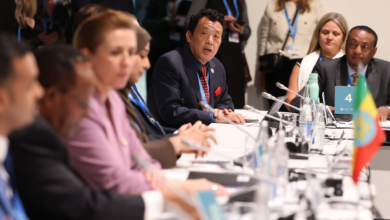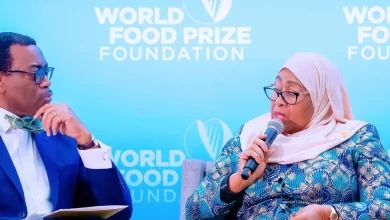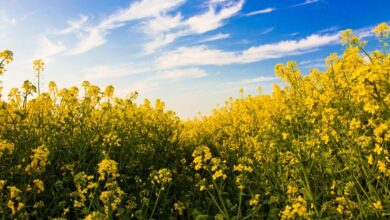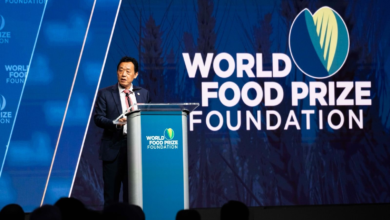World Food Day: Nigeria livestock asset is worth N13 trillion – Minister

Alhhaji Sabo Nanono
The Minister of Agriculture and Rural Development, Alhhaji Sabo Nanono, said Nigeria has huge potential in the livestock sector adding that Nigeria livestock asset is worth N13 trillion and that the country have no need to import milk.
The minister stated this on Tuesday at a press briefing on the 2020 world food day celebration, saying that the federal government will ban importation of milk into the country, even as he said that the government is working to develop the livestock sector and increase milk production in Nigeria.
He assured that the economic potentials of both livestock and fisheries are also being harnessed and respective value chains selected and targeted for development.
He said the administration of President Muhammadu Buhari is not resting on its oars in addressing challenges of the country’s agricultural sector, adding that the Federal Government through the Agro Processing Productivity Enhancement and Livelihood Improvement Support project (APPEALS) has set aside N600 billion as loan support to farmers across the country.
“No fewer than 2.4 million farmers are expected to benefit from the loan which has zero interest. The gesture will support farmers in the country to improve their productivity aimed at boosting the country’s agricultural sector.
“This year, hundreds of thousands of hectares of rice, maize, sorghum including livestock and fisheries have been affected by flood devastation in the country. A Special Committee has been set up by the Ministry to act on the emerging flood issues and come up with strategies to minimize its effects on agricultural production in order to avert food crisis and ensure sustainable food security for the nation. Already, a comprehensive flood mitigation and resilience plan for the affected farming communities nationwide has been finalized by the Ministry for consideration and approval by the President.
“As a nation, we consider the relevance of eradicating poverty and hunger and transforming our food production systems to ensure sustainable food security.
Significant progress has therefore been made to improve agricultural productivity since the inception of the present administration. To boost food security, Nigeria has curbed imports and has established a robust rice production programme to encourage more rice production at home.
“Efforts in this direction are starting to show results as Nigeria is now Africa’s largest producer of Rice. The country is also the largest producer of cassava in the world.” he said





